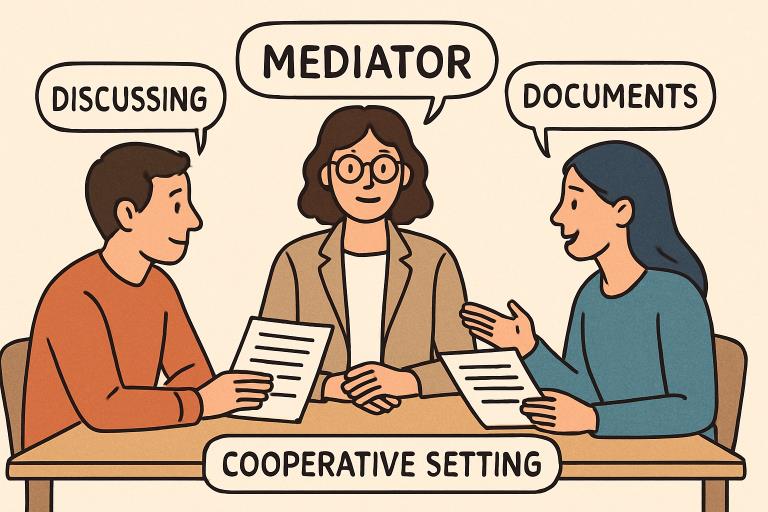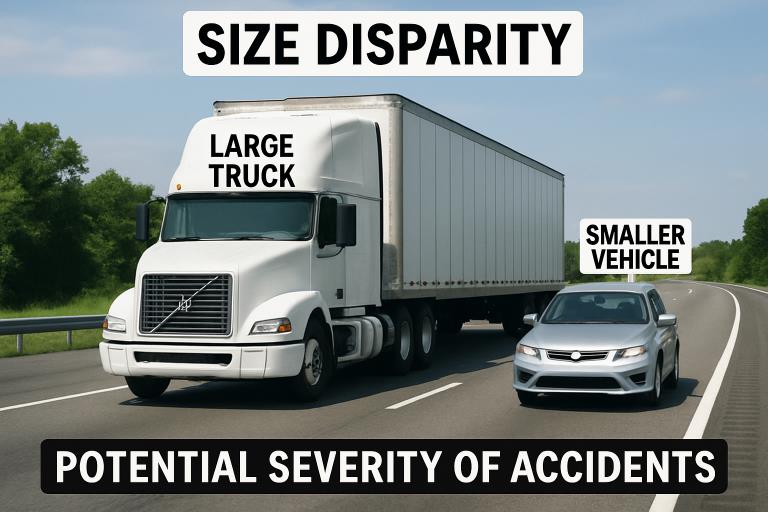Now Reading: Navigating Columbia Workers’ Compensation: A Comprehensive Guide
-
01
Navigating Columbia Workers’ Compensation: A Comprehensive Guide
Navigating Columbia Workers’ Compensation: A Comprehensive Guide

Understanding Workers’ Compensation in Columbia
Picture this: you’re hustling through a busy shift in Columbia, the kind where the city’s pulse matches your own heartbeat, and suddenly, bam—an unexpected slip, a heavy lift gone wrong, or maybe that nagging ache from repetitive tasks finally catches up. Workers’ compensation steps in like a reliable sidekick in this real-life drama, designed to catch you when work throws a curveball. It’s essentially an insurance net that employers provide, swapping out lawsuits for straightforward support: medical bills covered, wages replaced while you heal, and a buffer against the financial freefall that injuries can trigger. But here’s the insider scoop—knowing your rights isn’t just smart; it’s your secret weapon. In Columbia, the system draws from state laws that emphasize quick reporting and clear connections between your job and the mishap. Imagine navigating a foggy morning commute without headlights; that’s what tackling this without basics feels like. Dive deeper, and you’ll see it’s not one-size-fits-all—construction crews face different risks than office warriors, yet the core promise remains: if it’s work-related, you’re covered. And for those twists like car accidents on the job? That’s where layering in expert advice shines, turning potential chaos into a smoother path forward.
Eligibility Criteria for Workers’ Compensation
Eligibility isn’t some exclusive club—it’s more like a straightforward checklist that keeps the system fair and focused. At its heart, your injury or illness has to tie directly back to your job, like a plot twist rooted in the main storyline. Think slips on a wet factory floor during your shift, or that chronic strain from hauling boxes day in, day out. Columbia’s rules zoom in on the “arising out of and in the course of employment” angle, meaning off-the-clock gym sessions don’t count, but a delivery run gone awry does. Playful tip: if it happened while fetching coffee for the boss? Probably in. But state specifics add flavor—pre-existing conditions might complicate things if work aggravates them, turning a minor issue into a major plot point. Age, job type, even part-time status rarely bars you, as long as you’re an employee, not an independent contractor dodging the system. Insider vibe: document everything from day one, because proving that link is like assembling clues in a mystery thriller. Miss a detail, and eligibility could slip through your fingers. Understanding these nuances arms you with confidence, ensuring you’re not left guessing in the shadows.
The Claims Process: Where to Begin
The curtain rises on your claim the moment injury strikes—report it fast, like hitting pause on a escalating scene. Notify your employer pronto, ideally within days, because Columbia’s deadlines are strict, often 30 days or less, turning procrastination into a villain. They’ll hand over forms that feel like a script outline: details of the accident, witnesses, and your role in it all. Fill them out with precision—vague descriptions are like plot holes that weaken your story. Once submitted to the insurer, expect a review that could feel eternal, but stay proactive: follow up, gather medical notes, and keep records tidy. Here’s a cinematic hack—visualize it as directing your own recovery epic, where every timely step builds momentum. Employers guide the basics, but don’t hesitate to loop in pros if red flags wave. Common pitfalls? Delaying reports or skimping on details, which can derail even strong cases. Master this opener, and the rest of the process unfolds with less drama.
Medical Treatment and Workers’ Compensation
Rush to the doc—it’s not just about patching up; it’s scripting evidence for your claim. In Columbia, your employer’s plan might dictate the cast of healthcare providers, so check that list to avoid out-of-pocket surprises. Imagine walking into the wrong ER; it could complicate reimbursements faster than a plot twist. Keep every report, bill, and prescription like treasured props—they validate your narrative. Treatment ranges from stitches to surgeries, all covered if linked to work, but follow-ups are key to showing ongoing impact. Playful insider note: think of your body as the star; neglect it, and the whole production suffers. If disputes arise over necessity, appeals can rewrite the scene. Prioritize healing, document religiously, and let medical pros guide the tempo—it’s your health’s blockbuster moment.
Benefits You Can Receive
Benefits roll out like a multi-act payoff, tailored to ease the sting. Medical coverage leads, swallowing bills for treatments, meds, and rehab without you dipping into savings. Lost wages? Temporary disability payments kick in, often two-thirds of your average pay, bridging the gap until you’re back in action. For lasting impacts, permanent benefits adjust based on impairment levels, offering lump sums or ongoing support. Vocational rehab sneaks in if you can’t return to old roles, retraining you for new adventures. Death benefits provide a somber safety net for families, covering funerals and lost income. The insider vibe: maximize by understanding caps and calculations—Columbia ties them to state averages, so research pays off. It’s not limitless, but it’s a robust shield, blending financial relief with recovery resources in one seamless package.
Dealing with Claim Denials
Denials hit like a mid-story rejection, but don’t fade to black—appeal is your comeback arc. Uncover the why: maybe incomplete forms or questioned job links, then counter with fresh evidence. Columbia’s process involves hearings before commissions, where timelines tighten—file appeals swiftly, often within 20 days. Legal allies turn underdogs into heroes here, dissecting denials with expert eyes. Common culprits? Late reports or pre-existing debates, but persistence flips scripts. Gather more docs, rally witnesses, and present airtight arguments. Playful tip: treat it like rewriting a draft—each revision strengthens the final cut. Stay calm, informed, and proactive; many denials reverse on appeal, proving resilience wins.
Returning to Work After an Injury
Easing back feels like a sequel’s slow build—communicate openly with your boss about limits, turning potential friction into smooth transitions. Modified duties might star, like lighter loads or desk shifts, guided by doctor’s notes. Columbia encourages gradual returns, perhaps part-time at first, to test the waters without risking relapse. Insider scoop: document accommodations to protect rights, avoiding premature full-duty pushes. Therapy or aids could cameo, ensuring you’re not just present but thriving. If jobs don’t fit anymore, explore transfers or retraining. It’s a collaborative dance—employer obligations meet your recovery rhythm, scripting a stronger comeback.
Understanding Permanent Disability Ratings
When injuries linger like unresolved threads, ratings quantify the long haul, dictating benefit flows. Docs evaluate impairment percentages—say, 20% for a bum knee—using state guides that blend function loss with job impact. Higher ratings unlock extended payouts, sometimes lifelong. Columbia factors age, occupation, and wage loss into this math, making it a personalized equation. Challenge lowballs with second opinions; appeals refine the score. Playful vibe: it’s like grading your resilience, where knowledge boosts the mark. Grasp this, and long-term planning sharpens, turning uncertainty into strategy.
The Role of Legal Assistance
Lawyers enter as savvy directors in this compensation saga, navigating twists you might miss solo. They decode legalese, build ironclad cases, and negotiate settlements that feel fair. In disputes or appeals, their expertise shines, from gathering evidence to courtroom cameos. Columbia’s complexities—deadlines, forms, insurer tactics—yield to their insider know-how. Cost? Often contingency-based, so no upfront hits. Think of them as plot enhancers, ensuring your story ends justly. Seek ones specialized in workers’ comp for that edge.
Preventing Workplace Injuries
Flip the script—prevention turns potential disasters into non-events. Employers must craft safe sets: proper gear, training drills, hazard hunts. You play co-star, staying vigilant, reporting risks, and embracing protocols. Columbia mandates safety standards, from ergonomics to emergency plans, reducing odds dramatically. Fun tip: make it a team game—safety meetings as brainstorming sessions. Awareness breeds caution, slashing slips and strains. Invest here, and claims become rare footnotes.
Documentation and Record-Keeping for Your Claim
Records are your claim’s backbone, chronicling the saga from crash to comeback. Jot the when, where, how—witness names, photos if possible, symptoms in real-time. Track every doc visit, email, bill; organize chronologically for easy access. This arsenal counters doubts, painting a vivid, undeniable picture. Insider hack: use apps or folders for seamless storage—digital or paper, consistency rules. Strong docs accelerate approvals, minimizing hassles. Build this habit early; it’s the quiet hero ensuring your narrative holds up.
FAQ
What is workers’ compensation?
Workers’ compensation is an insurance system that provides medical benefits and wage replacement for employees injured or ill due to their job. It helps cover costs without needing to sue your employer.
Who is eligible for workers’ compensation in Columbia?
Most employees qualify if their injury or illness stems directly from work activities or conditions. Independent contractors typically don’t, but specifics depend on state rules linking the issue to employment.
How do I start a workers’ compensation claim?
Report the injury to your employer immediately and fill out the provided forms accurately. Submit them promptly to meet deadlines and begin the review process.
What benefits can I expect?
You may receive medical expense coverage, lost wage compensation, and disability payments based on injury severity. Additional perks like vocational rehab could apply if you can’t return to your previous role.
What if my claim is denied?
You can appeal the decision by filing within the set timeframe and providing more evidence. Consulting a legal expert often helps address the denial reasons effectively.
How important is medical treatment in a claim?
Immediate and documented treatment is vital for health and claim validity, as it proves the injury’s extent. Follow your plan’s provider rules to ensure coverage.
What about returning to work?
Discuss accommodations with your employer and follow medical advice for a safe transition. Modified duties or gradual returns can support recovery without setbacks.
How are permanent disabilities rated?
Ratings assess impairment levels using medical evaluations and state guidelines to determine benefit amounts. Higher percentages lead to more substantial long-term support.
Should I get a lawyer?
A specialized attorney can navigate complexities, protect rights, and improve outcomes in disputes. They often work on contingency, making it accessible.
How can I prevent injuries at work?
Follow safety protocols, participate in training, and report hazards promptly. Employers must maintain safe environments to minimize risks.





















